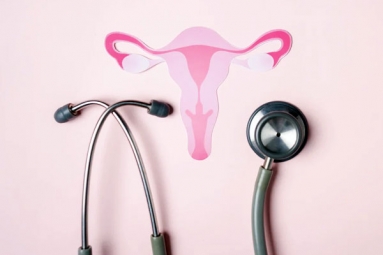
(Image source from: Canva.com)
As women enter their 30s, they often find themselves juggling various responsibilities, such as careers, family, and personal growth. During this hectic period, maintaining good health can sometimes take a backseat. However, the 30s are a crucial decade for building the foundation for long-term well-being. Early health screenings play a vital role in identifying and managing potential health concerns before they become severe. Dr Bilal Thangal T M, the Medical Lead at NURA, delves into the importance of early screening for women in their 30s, focusing on prevalent health issues.
Anemia, particularly iron deficiency anemia, is highly prevalent among women, especially in India. Factors like menstrual blood loss, pregnancy, and dietary deficiencies significantly contribute to this condition. Women in their 30s may often experience symptoms such as fatigue, weakness, and paleness, which can severely impact their quality of life. Regular blood tests can detect anemia early, allowing for timely interventions through dietary adjustments and supplements to improve overall health and energy levels.
In the last 15 years, obesity rates have surged dramatically, particularly among women in India. This alarming trend has led to an increase in lifestyle-related diseases.
Excess weight can contribute to various health problems, including diabetes, heart conditions, and bone disorders. Insulin resistance linked to obesity can progress to type 2 diabetes, while extra pounds can raise blood pressure and strain the heart. Additionally, obesity may cause joint issues, increasing the likelihood of early-onset osteoporosis. Regular medical check-ups, including assessments of body mass index, blood sugar levels, and lipid profiles, are crucial to effectively monitor and manage weight-related health concerns.
Thyroid disorders, particularly hypothyroidism, are more prevalent in women than men, often going undetected for prolonged periods. Symptoms like fatigue, weight gain, and mood changes are frequently attributed to stress or a hectic lifestyle. Untreated thyroid conditions can lead to severe consequences, such as heart disease, fertility problems, and mental health issues. Regular screening for thyroid function through blood tests measuring thyroid-stimulating hormone (TSH) levels can aid in early identification and effective management.
Obesity and hormonal imbalances can contribute to the development of early-onset osteoporosis in women. This condition, characterized by weak and fragile bones, can result in fractures and significant health complications. Women in their 30s should consider undergoing bone density tests, especially if they have risk factors like a family history of osteoporosis, sedentary lifestyle, or prolonged use of steroids. Adjusting daily routines, taking specific supplements, and using prescribed drugs can assist in preserving strong bones and reducing the risk of breaks or cracks.
Escalating Heart Disease Concerns: The surge in obesity, smoking habits, poor dietary choices, and physical inactivity has contributed to an alarming rise in heart attacks among women. Traditionally viewed as a male-dominant condition, cardiovascular problems are now significantly impacting the female population as well. Coronary Heart Disease develops when the major blood vessels become damaged or diseased. Typically, the culprit is plaque, a buildup of fats, cholesterol, calcium, and other substances in the blood, often accompanied by inflammation. This plaque accumulates in the arteries, restricting blood flow to the heart. Over time, the diminished blood supply may trigger symptoms of coronary heart disease, such as chest pain and shortness of breath. A complete blockage can lead to a heart attack. Since plaque development is a gradual process, individuals may not exhibit any symptoms until the obstruction becomes substantial. However, early detection and lifestyle modifications can help prevent and manage this disease. A specialized CT scan of the heart allows doctors to identify and measure the calcium content in the coronary arteries, even in asymptomatic patients.
Early detection is the key to tackling major health concerns affecting women. Regular screenings like Pap smears, HPV tests, mammograms, and breast exams can significantly improve treatment outcomes and survival rates for cervical and breast cancers. Additionally, the rising incidence of lung cancer in women, even among non-smokers, highlights the need for increased awareness and early screening, particularly in the Asian community.
Embracing preventive healthcare during your 30s is not just about avoiding illness; it's about empowering women to take charge of their wellbeing. By prioritizing regular checkups, women can identify potential health issues early on, enabling them to address concerns before they escalate. This proactive approach can help mitigate the impact of prevalent conditions such as anemia, obesity, thyroid disorders, cardiovascular diseases, osteoporosis, and various cancers, ensuring a healthier and more fulfilling life. Make your 30s a decade of conscious health management and wellness awareness by embracing regular screenings and preventive care.







